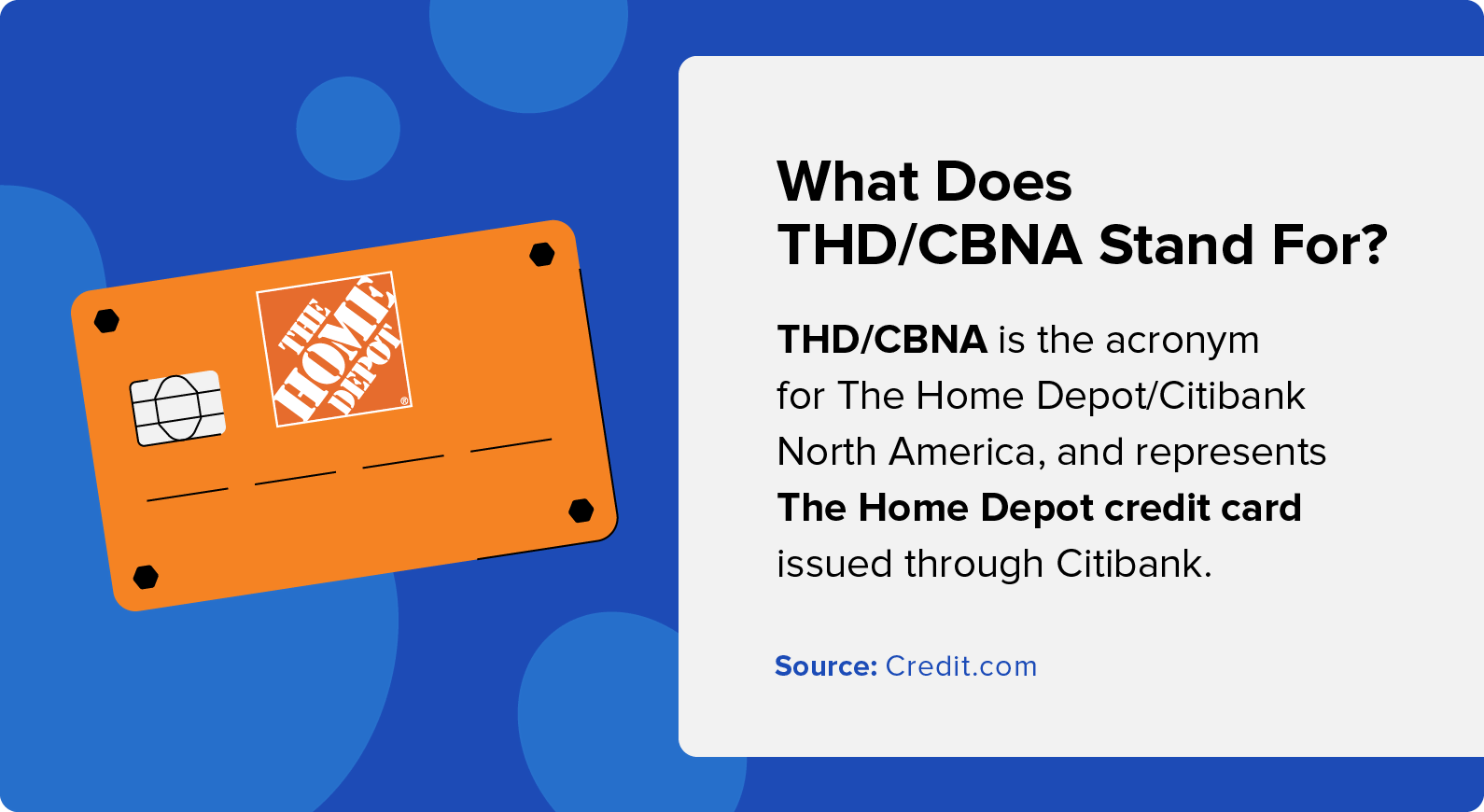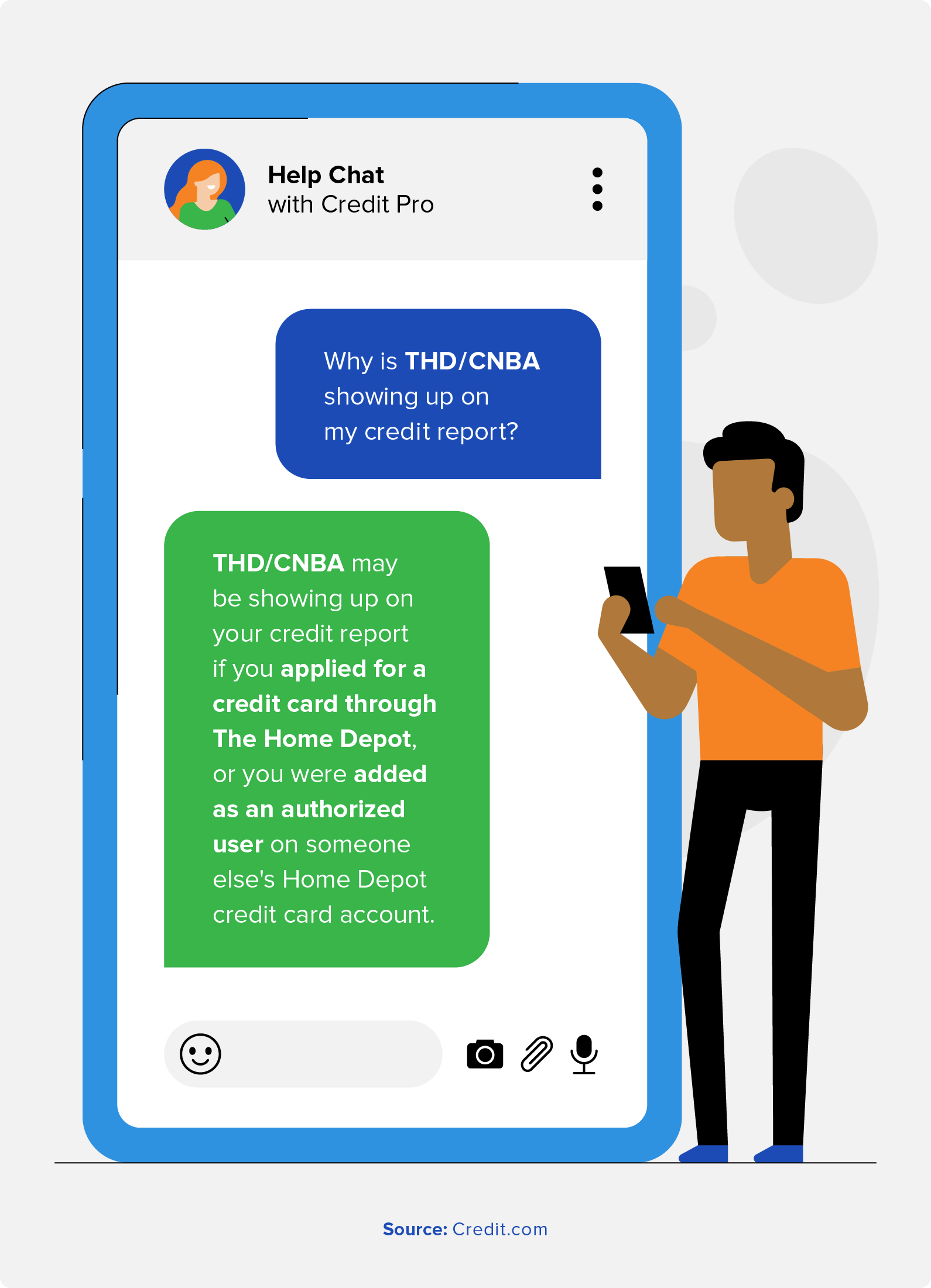What Does THD/CBNA on My Credit Report Mean?
Many or all of the products featured here are from our partners who compensate us. This may influence which products we write about and where and how the product appears on a page. However, this does not influence our evaluations.
Can you pay a loan with a credit card? Yes, paying a loan with a credit card is sometimes possible. Yet, whether or not you can do so depends on factors such as the lender’s policies or the type of loan you want to pay off.
By now, you probably know that keeping track of your creditworthiness is essential for financial health, and regularly monitoring your credit report can help ensure your credit score is accurate. But what happens when you find something unexpected on your report? If you’ve come across THD/CBNA on your credit report, you may be left wondering about its significance.
If you want to know what THD/CBNA means on your credit report, you’re in the right place. We’ll tell you what you need to know about THD/CBNA.
What Does THD/CBNA Stand For?
THD/CBNA stands for The Home Depot/Citibank North America. Home Depot credit cards are issued through Citibank North America, so you’ll likely see a hard inquiry from Citibank on your credit report if you’ve recently applied for a Home Depot credit card.

Why Is THD/CBNA on My Credit Report?
If THD/CBNA appears on your credit report, it’s likely due to your involvement with The Home Depot or Citibank North America. Below are two instances where you’ll see THD/CBNA show up on your credit report.
You Applied for One of The Home Depot Credit Cards
There are a few retail credit cards offered by The Home Depot: The Home Depot Consumer Credit Card, The Home Depot Commercial Revolving Charge Card, and The Home Depot Commercial Account.
If you applied for any of these cards and granted authorization to the issuer (Citibank North America) for a credit check, it’s possible you’ll see a hard credit inquiry on your credit reports. Hard credit inquiries can remain on your reports for up to two years, meaning they may appear even if you haven’t recently applied for the card.
If you’ve pre-qualified for one of The Home Depot’s credit cards, you may also see THD/CBNA on your credit report, but rest assured that pre-qualification should not affect your credit score unless you accept the credit offer.
You Were Added as an Authorized User on One of The Home Depot Credit Card Accounts
If you’re added as an authorized user on someone else’s THD/CBNA account, it will likely appear on your credit report. Reviewing your credit report regularly is important to ensure accuracy and identify any potential errors or discrepancies.

How to Remove THD/CNBA From My Credit Report
If you’ve authorized Citibank to perform a credit check to see if you qualify for a Home Depot credit card, it’s considered a hard inquiry, and you will not be able to remove THD/CNBA from your report. The inquiry should fall off your report on its own within two years.
If you see a soft inquiry on your report from the credit card pre-qualification process, it will not impact your credit score and should disappear from your report in one to two years. If you accept the credit offer from the pre-qualification process, the soft inquiry will often become a hard inquiry for the final approval of credit.
What Happens if You Didn’t Authorize a Credit Pull?
If you come across an inquiry from this particular retailer that you did not authorize, it’s important to be vigilant and take it seriously. Unauthorized inquiries may indicate a reporting error or potentially fraudulent use of your identity.
Here are several steps you can take to resolve an unapproved hard inquiry:
- Dispute the inquiry: Contact the credit bureaus and file a dispute on your credit report to challenge the accuracy of the inquiry. If possible, provide supporting documentation that proves the inquiry was unauthorized.
- Monitor your credit: Keep a close eye on your credit reports and scores to ensure no further unauthorized activity occurs. Regular monitoring can help you identify any potential issues and take prompt action.
- Freeze your credit: Freezing your credit, also known as a credit freeze or security freeze, is a protective measure that restricts access to your credit report by potential lenders or creditors. When you freeze your credit, it prevents new creditors from viewing your credit history, making it more difficult for identity thieves to open new accounts in your name.
- Consider hiring a credit repair professional: If you find the dispute process overwhelming or need experienced assistance, you may choose to hire a reputable credit repair company.
Remember, acting quickly when dealing with unauthorized inquiries is crucial to protect your credit and personal information.
It’s wise to review your credit report regularly to ensure accuracy and identify any potential errors or discrepancies related to THD/CBNA. By staying informed and taking appropriate action, such as disputing unauthorized inquiries, you can maintain control over your credit and protect yourself from potential fraud.
